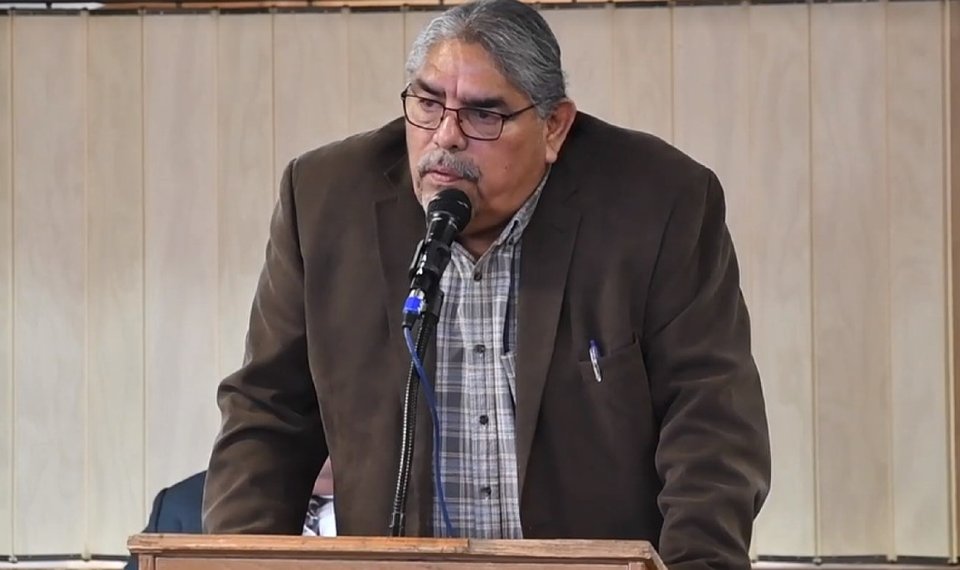
- Details
- By Lenzy Krehbiel Burton
ANADARKO, Okla. — The Kiowa Tribe of Oklahoma may be pushing pause on its CARES Act spending.
Judge Shannon Edwards with the Southern Plains Court of Indian Offenses heard two hours of questions Tuesday afternoon via Zoom on a request for an injunction from the Kiowa Tribe’s legislature.
The seven members made the request on the grounds that the tribe’s chairman, Matthew Komalty, ignored the Kiowa Constitution by spending CARES Act money without getting a budget approved first by the legislature and the Kiowa Indian Council, which consists of all Kiowa adults aged 18 and older.
The legislators’ request specifically seeks to stop any further distribution of CARES Act funds until a budget can be approved. As per the tribe’s constitution, 45 days’ notice must be given for a Kiowa Indian Council election.
“The public interest is not just in the money that’s available now,” said the legislators’ attorney, Gary Pitchlynn. “It’s that the constitution is abided by and followed by the tribe’s government.”
In May, the tribe received more than $19 million in federal COVID-19 relief funds, which the executive branch categorized as grant money. After two meetings with the legislative branch, the executive branch formally unveiled a plan for that money that required Kiowa citizens to complete a four-page needs assessment before receiving funds to cover COVID-19-related expenses.
Along with requesting information about the size of an applicant’s household, its income and expenses both before and during the pandemic, the application requires documentation to support the specific request, such as a shutoff notice for utility aid, verification of unemployment benefits for food assistance or a school supply list for help with distance learning costs.
“It is not in the public’s interest to freeze this money until a budget can be passed,” said Komalty and Vice Chairwoman Rhonda Ahhaitty’s attorney, Barry Brandon. “The interest definitely goes towards what the defendants are trying to do during a situation that was thrust upon all of us, but in particular tribal leaders. There were two new cases diagnosed yesterday among Kiowa citizens. This pandemic continues to grow and the people continue to have needs.”
However, several members of the Kiowa Tribe’s legislature have publicly said they have other ideas on how the money should be spent, including a $1,000 payment to all of the roughly 14,000 enrolled Kiowa citizens.
Under guidance issued by the U.S. Department of the Treasury, state, local and tribal governments are allowed to use CARES Act money to provide direct cash assistance to their constituents. However, those funds must be disbursed based on documented COVID-19-created needs that fall within specific guidelines. Blanket per capita checks are not allowed and going that route can be grounds for the federal government to request an audit.
Ignoring a request to only speak through legal counsel, Angela Chaddlesome McCarthy, Speaker of the Kiowa Tribe’s legislature, refuted claims from Chairman Komalty’s attorney that her branch of government wanted to use the money for a per capita payment.
“We always said it was economic relief to all tribal members,” she said. “It was supposed to be an equal distribution among all members.”
Edwards said she would take the matter under advisement and attempt to issue a ruling by the end of the week.
In addition to the injunction request pending before the Court of Indian Offenses, an impeachment hearing for Komalty is scheduled for 10 a.m. Thursday in Red Buffalo Hall at the tribe’s complex in Carnegie.
Citing five allegations of violating the constitution – including how the CARES Act money was distributed – the legislators voted unanimously in June to bring impeachment charges forward.
A separate recall petition is also circulating among the tribe’s electorate, which requires 1,500 signatures to call a special meeting of the Kiowa Indian Council to vote on removing Komalty from office.
More Stories Like This
Native News Weekly (August 25, 2024): D.C. BriefsNavajo Nation Mourns the Passing of Former Vice President Rex Lee Jim
Deb Haaland Earns Endorsement From Communications Workers of America Local 7076
University Soccer Standout Leads by Example
Two Native Americans Named to Democratic Congressional Campaign Committee's“Red to Blue” Program
Help us defend tribal sovereignty.
At Native News Online, our mission is rooted in telling the stories that strengthen sovereignty and uplift Indigenous voices — not just at year’s end, but every single day.
Because of your generosity last year, we were able to keep our reporters on the ground in tribal communities, at national gatherings and in the halls of Congress — covering the issues that matter most to Indian Country: sovereignty, culture, education, health and economic opportunity.
That support sustained us through a tough year in 2025. Now, as we look to the year ahead, we need your help right now to ensure warrior journalism remains strong — reporting that defends tribal sovereignty, amplifies Native truth, and holds power accountable.
 The stakes couldn't be higher. Your support keeps Native voices heard, Native stories told and Native sovereignty defended.
The stakes couldn't be higher. Your support keeps Native voices heard, Native stories told and Native sovereignty defended.
Stand with Warrior Journalism today.
Levi Rickert (Potawatomi), Editor & Publisher
